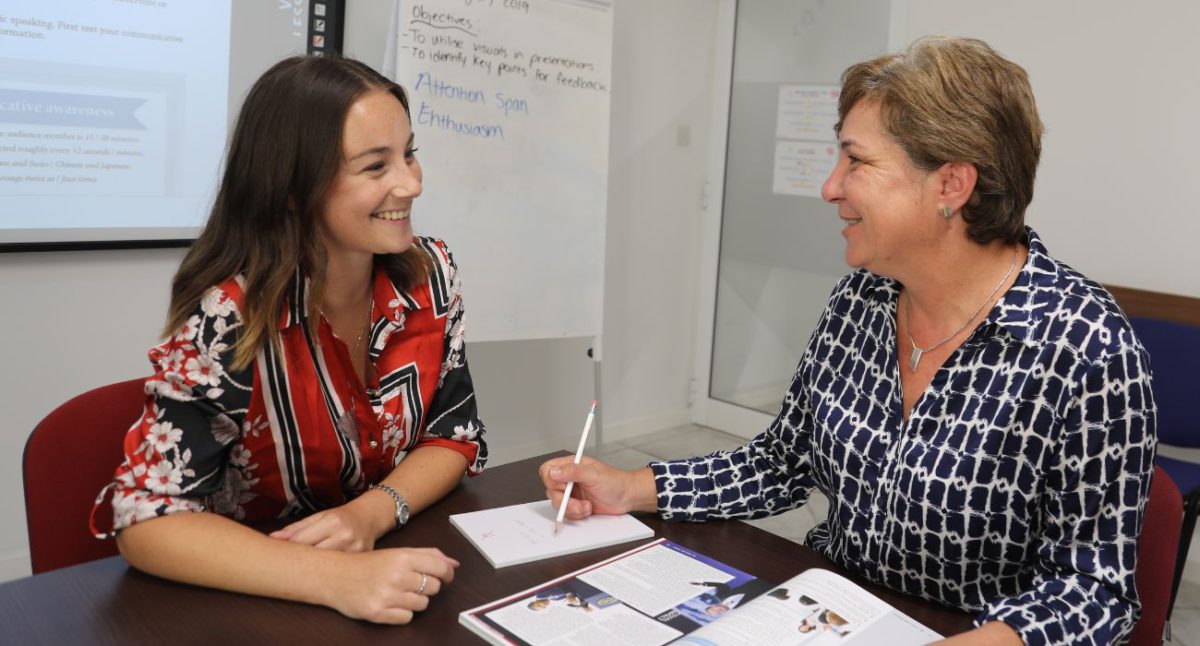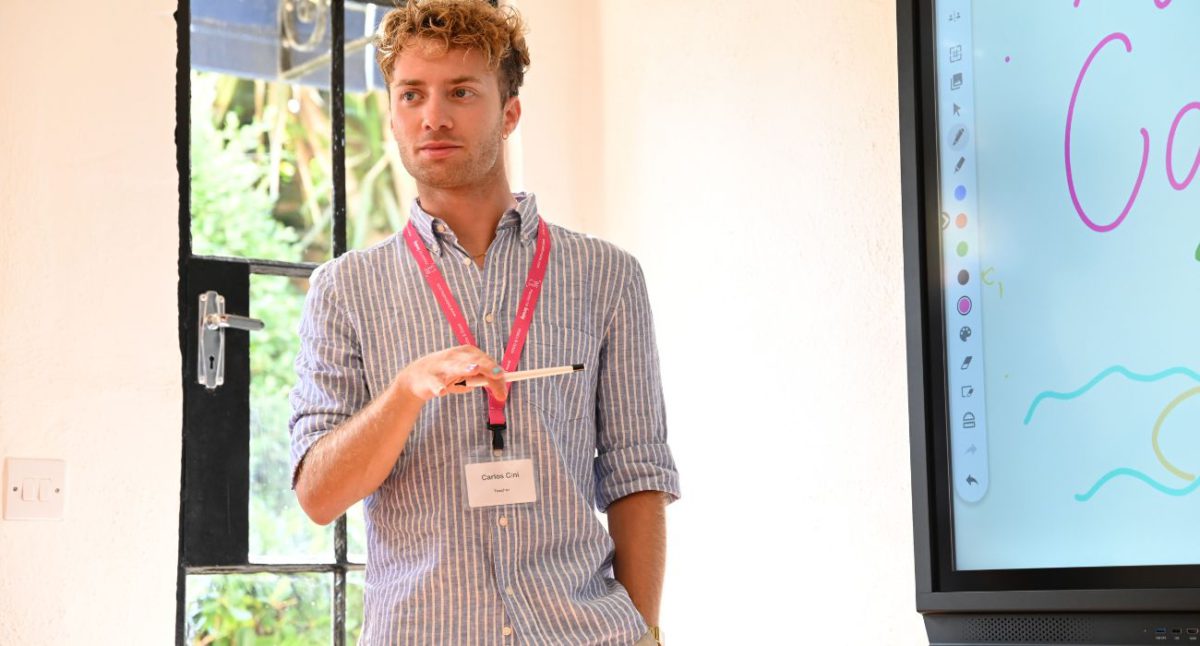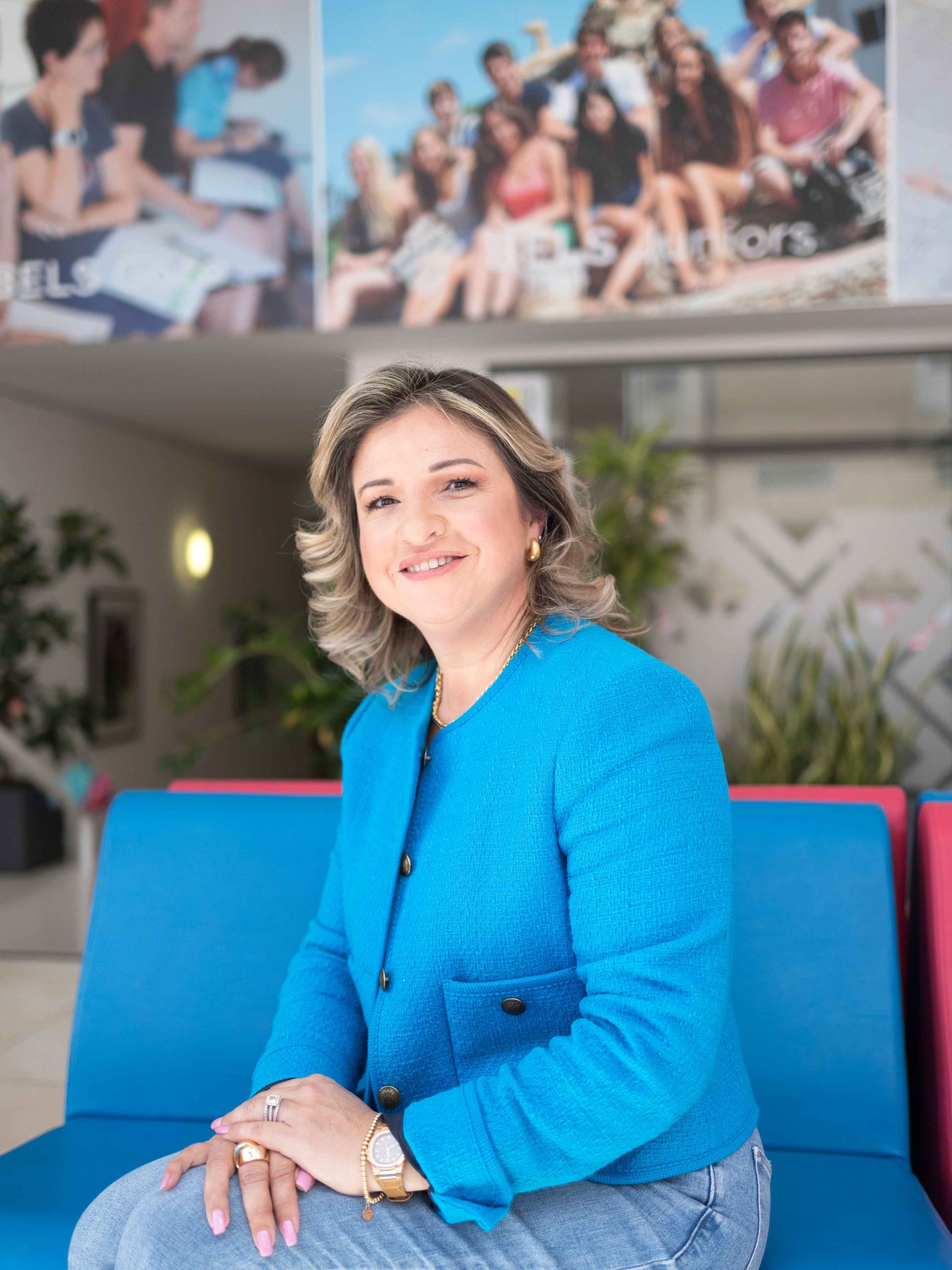Sitting down with Rebecca Bonnici, the word ‘passion’ enters the conversation. As the Business English Language School (BELS) CEO eloquently describes the company’s mission with almost infectious energy, it is clear this is not a mere marketing tactic, “We’re genuinely passionate about teaching English.” Rebecca says as we discuss one of the strengths that fuels her company’s commitment to high-quality, personalised training programmes and their openness to adding to their product offering.
Established in 1997, BELS has become one of the island’s foremost and longest-running English language school operators. Over the years the company has grown and it now comprises a team of 35 staff, which extends to 55 during peak season, to cater to the diverse needs of its students. With 22 physical classrooms between its two individual Gozo and St Pauls Bay centres, plus an online platform that currently runs around 60 different online classes, the school focuses on excellent customised courses and consistent delivery. (The wide range of General English Language courses for foreign students, families and adults generates 70 per cent of the school’s income.)
Rebecca considers the company’s modest size as another superpower that helps it remain responsive to different client needs and requirements. This agility was instrumental in “the pivot [they] managed to pull off during the pandemic” towards an online service proposition, getting ahead of the Covid hardships to help students and teachers alike – “while many others in the industry faced obstacles in maintaining operations, we were fortunate to navigate through and continue serving our staff and students”.

The conversation turns to BELS’ workplace training programmes. These operate at the intersection of language proficiency and professional development, enhancing the communication skills of employees from numerous industries including (to name just a few) accounting, finance, food and beverage, gaming, hospitality, healthcare, IT, law, retail and sports.
The Professional English programme is delivered by teachers trained in English for Specific Purposes. Clients can choose the MQF level 5 certified courses (following a set syllabus) which are accredited by the Malta Further and Higher Education Authority and will be issued a completion certificate displaying a European Credit Transfer System value acknowledged by other academic institutions. Another option is to opt for a fully personalised course if the accredited ones do not fit in with the clients’ exact needs.
In addition to this, BELS runs Personalised Corporate Training Courses, designed from scratch to address a myriad of linguistic challenges and requirements. The comprehensive nature of their preparation, structure and implementation merits mention.
Before crafting any corporate language training programme, BELS’ Director of Studies conduct an in-depth needs analysis with HR and relevant company leaders to understand their goals. This phase is critical because “grasping client expectations is very different from delivering a course,” Rebecca clarifies with regards to bridging the gap between clients’ motivations and their staff’s diverse learning styles. Learners undergo a pre-course proficiency assessment, a key factor that enables BELS to perform any necessary ‘triage’ based on varying individual levels.

BELS understands that learners might be hesitant or worried about the connection between training and performance evaluation, and they want to provide sensitivity and support. At BELS they believe that learning is an investment in an employee’s development, and aim to make individuals feel empowered rather than demotivated – “Our goal is to create a safe and supportive environment where learners can grow and enhance their skills.” BELS reinforces the message that learning is an investment in the growth of their employees. In fact, some of their clients’ leaders even attend the course themselves, emphasising the importance of team-building.
The teaching itself is far from one-size-fits-all. “It’s not a cookie-cutter straight-out-of-the-box approach,” Rebecca emphasises, also referring to ongoing feedback that helps BELS “adapt and evolve based on what works best for [their] learners”.
Emphasis on real-world relevance permeates every aspect of the programme. Combining Oxford and Cambridge learning resources, reputable news publications and realistic workplace case studies, the school ensures that learning is dynamic and relevant. Equipment such as interactive panels and VR goggles are core learning tools and learners’ company peers are even brought in to provide authentic on-the-job context.
Marrying proficient English with practical application, teaching does not just focus on grammatical comprehension but also arms the learners with ‘situational’ vocabulary and the ability to formulate essential constructions relevant to their role and industry (such as waiters knowing how to recommend a particular wine over another).
Rebecca stresses the distinction between professional development and professional language training. “It is important to understand we’re not teaching people how to do their job, whether they are accountants, football coaches, engineers etc” she clarifies. “We’re teaching them how to communicate better in their job.”

Rebecca sheds light on the main catalyst behind this diversification: namely, the lack of communicative knowhow in Malta’s workforce. “Graduates are coming out of university with tonnes of theoretical knowledge about their area of specialisation but limited ability to communicate effectively and professionally,” she explains candidly. “All employees are unknowingly acting as ambassadors for their company. So when you have somebody who can’t effectively communicate their expertise to their team, clients and stakeholders, it’s a problem.” Meanwhile, there is the scenario of “foreign workers coming to Malta; with an unquestionable will to work but who are held back by their lack of English proficiency”.
BELS’ online platform is relevant here too. Apart from becoming a vital additional delivery channel, it presents a major advantage for the corporate training onboarding. While third country nationals wait in their countries for their Malta work permits to be processed, BELS uses this time constructively to equip them with entry level, functional English prior to their arrival.
Organisations are increasingly realising the link between its personnel’s linguistic competence and the achievement of company objectives. It is not a passing trend but a fundamental shift whereby “many HR forums are mentioning that the ability to communicate has been underestimated for too long”. Rebecca points out that this is a significant issue for the tourism and hospitality sectors that generate “a respectable portion of Malta’s GDP” and are connected to the country’s reputation.
Reflecting on BELS’ success, Rebecca knows it is largely due to a deep awareness of its niche and strengths. “I always tell my team, we’re not trying to be everything for everyone,” she shares. “We’ve identified our niche. Instead of sticking to 22 classrooms, we could have opened a ‘cardboard cutout’ centre with 40 rooms and daily sessions at set times. We chose not to be that. Instead we’re the school that listens to the learners and devises bespoke courses for people who are no longer in compulsory education.“
The role of the teaching and administrative staff in BELS’ journey is not insignificant. If Rebecca is the head and shoulders of the company, her team is the backbone helping its CEO drive the school’s mission and values forward through a shared vision and dedication to providing the highest standards of teaching English as a foreign language.
“We know that once we listen to our clients, we have enough experience to draw on to build something that is quite special. Something which keeps them coming back and recommending us – not because we’re doing something utterly unique but because we’re doing something that we enjoy and we do well. Learners pick up on this enthusiasm which contributes to them feeling like real participants in their educational journey,” she concludes.
It all adds up to meaningful impact for the learner, for their organisation and for BELS.
Finance Minister confirms continuity of food and energy subsidies
Spending on food and energy subsidies as a percentage of the GDP will be at 0.7% in 2025
MHRA congratulates Glenn Micallef on EU role, highlights positive impact on Malta’s tourism and cultural sectors
The lobby group emphasised that Malta’s cultural assets and sports scene are key factors in attracting visitors and fostering economic ...
SME Chamber and Malta Developers Association slam controversial Identità lease attestation form
Identità's new procedure concerning lease attestation forms was not welcomed by these local stakeholders






